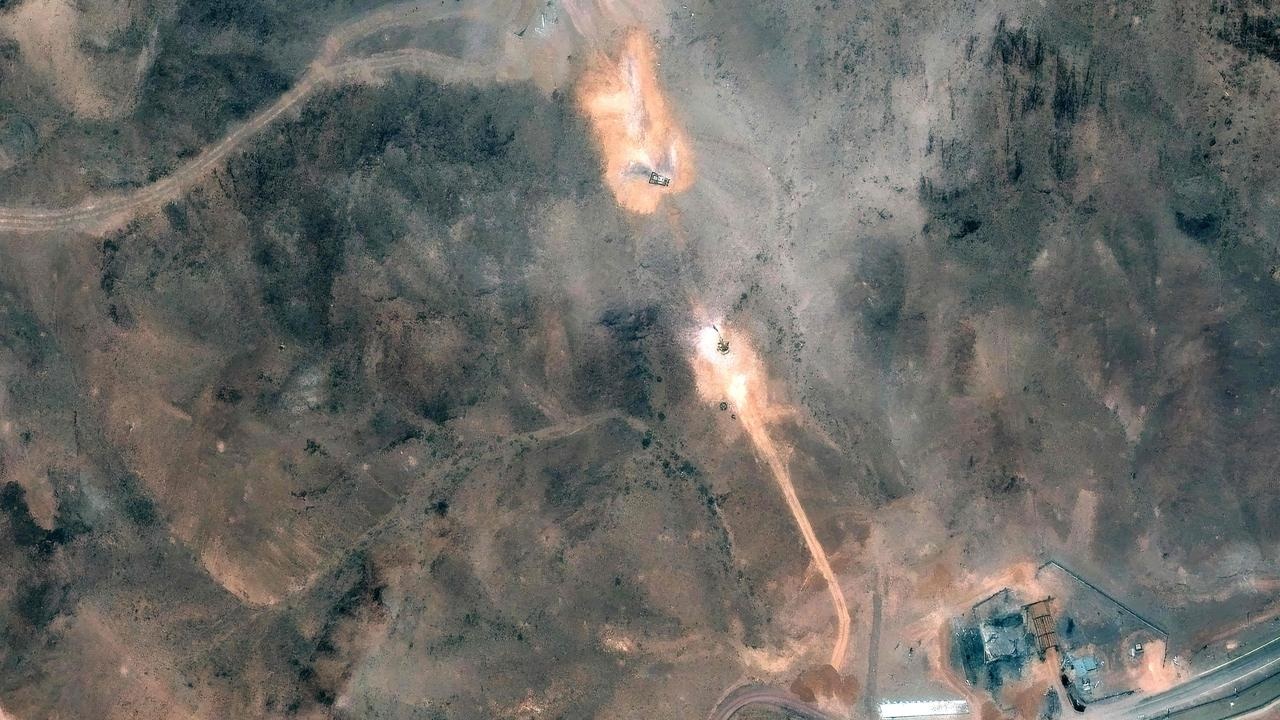The Pentagon announced that recent U.S. airstrikes on Iranian nuclear infrastructure may have significantly delayed Iran’s nuclear ambitions, potentially setting the program back by one to two years.
This assessment was shared by Defense Department spokesperson Sean Parnell during a press briefing on Wednesday.
Parnell explained that internal intelligence evaluations suggest the strikes, which targeted three critical facilities last month, had a profound impact.
“We have degraded their program by one to two years,” he said, underscoring that this conclusion came from within the Department of Defense.
However, he offered no additional detail about the sources or intelligence methods used in forming that conclusion.
This more cautious evaluation differs from former President Donald Trump’s public statements, in which he claimed that Iran’s primary nuclear sites had been completely destroyed.
While Parnell echoed Trump’s general sentiment, his remarks were more tempered and did not fully align with Trump’s portrayal of the attacks’ success.
Early assessments by the Defense Intelligence Agency (DIA) initially suggested that Iran’s program might have been delayed by only a few months.
These initial findings were based on limited data collected within 24 hours of the strikes and were categorized as “low-confidence,” reflecting the uncertainty typical of early-stage intelligence.
As further intelligence has emerged, however, a more complex picture has taken shape.
U.S. agencies have reportedly obtained materials—some from surveillance and bombing simulations, that point to significant destruction at key sites.
Notably, there is strong evidence that centrifuges at the Fordow enrichment facility were destroyed, although it’s still unclear whether the structure of the site itself was compromised.
Trump’s advisors have used this updated intelligence to defend the former president’s characterization of the attacks.
Sources familiar with the matter said that classified footage from B-2 bombers, as well as external intelligence, likely provided by Israel, was used to confirm that key components of Iran’s enrichment capabilities had been disabled.
These materials reportedly showed shock waves from precision bombings destroying sensitive centrifuge equipment, which is essential for uranium enrichment.
The extent of damage to these centrifuges is particularly significant. Iran’s ability to enrich uranium is central to its potential to build a nuclear weapon.
While the country has consistently claimed that its nuclear activities are for peaceful purposes, the international community, especially the United States and its allies, remains skeptical.
The destruction of enrichment equipment not only delays Iran’s capacity to produce highly enriched uranium.
It also introduces major logistical and technical challenges for replacing the destroyed infrastructure.
While Trump’s aides insist that the strikes represent a major strategic win that has delayed Iran’s progress by years, U.S. intelligence agencies remain cautious.
They emphasize that long-term impacts will depend on Iran’s capacity to replace damaged infrastructure, source new centrifuges, and restore operations.
The DIA’s initial assessment allowed for two possibilities: either Iran could swiftly reestablish operations using new equipment, or it might be forced to abandon the facility altogether.
This internal debate reflects broader tensions in how intelligence findings are interpreted and used in U.S. foreign policy.
It is supposedly a dynamic that has shaped decisions from the Iraq War to the COVID-19 pandemic.
In both cases, intelligence was used to justify major actions and later became subjects of controversy as initial conclusions were challenged or disproven.
The U.S. government has so far refrained from fully endorsing Trump’s bold claims that the strikes “obliterated” Iran’s nuclear capabilities.
No official intelligence report has used such definitive language.
Also, intelligence agencies typically avoid such absolute characterizations due to the uncertainties involved in battle damage assessments.
As the international community continues to monitor the aftermath of the strikes, the coming months will be critical in understanding whether Iran’s nuclear program has truly been derailed, or simply delayed.







